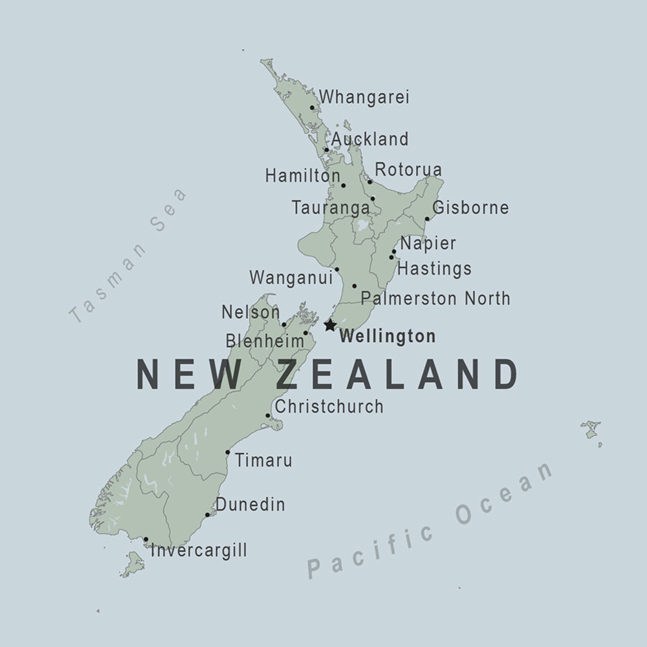
Five points about New Zealand
- New Zealand, being only a few degrees west of the International Date Line, is the first country to see the dawn of each new day.
- With an excellent Pedagogy Influenced by the UK education system, New Zealand focuses on research-based teaching, which means you will learn dealing with situations in a systematic and an organised manner. You’ll be taught how to work independently as well as in a team at various levels;
- New Zealand offers a wonderful multi-cultural environment that exists in perfect harmony with the country’s outdoorsy lifestyle. Living here provides every student a chance to grow with its diverse culture and natural beauty all at once.
- New Zealand ranks second on the Global Peace Index 2018, which speaks about the social tolerance and political stability of the Kiwi democracy. As an international student, you’ll have the same rights as your Kiwi counterparts. New Zealand has no nuclear power station.
- New Zealand has two official national anthems of equal status. Apart from English and Mãori, New Zealand has a sign language which is also its third official language.
Location and Geography about New Zealand

New Zealand is an island country located in the south-western Pacific Ocean, near the centre of the water hemisphere. It consists of a large number of islands, estimated around 700. New Zealand is the sixth-largest island country in the world, with a land size of 268,710 km2
About 2/3 of the land is economically useful, with the remainder being mountainous. The North Island is the most populous island with 4 million residents, and Auckland being by far the largest metropolitan area in the country by population and urban area. The country is situated about 2,000 kilometres (1,200 miles) south-east of the Australian mainland across the Tasman Sea.
Economy of New Zealand
New Zealand’s economy is developed, but it is comparatively small in the global marketplace. In the late 19th and early 20th centuries, New Zealand’s standard of living, based on the export of agricultural products, was one of the highest in the world, but after the mid-20th century the rate of growth tended to be one of the slowest among the developed countries.
Highly productive pastoral farming, embracing extensive sheep grazing and large-scale milk production was made possible by a temperate climate and heavy investment in land improvement.
Living Conditions and Cost of Living in New Zealand
Studying abroad can be an expensive affair, however one of the benefits of studying in New Zealand is its affordable living. Universities costs differ based on courses, but it can be easily balanced with a part-time job. To support your tuition fee, you may need about NZD 22 500 – NZD 36 000 annually based on what you choose to pursue. Courses like Medicine or Engineering are likely to be more expensive than others.
Education System
The Education system in New Zealand is ranked #1. The universities of New Zealand follow the British format of high – quality education, the university enrolment ratio of teachers and students is 6:7, this allows the students to have better interaction with their tutors. Apart from the regular course curriculum, universities of New Zealand are also popular for their practical and theoretical knowledge transfers among their students.
All the universities in New Zealand are recognised globally and cater to the academic needs of their students. The educational institutions based in New Zealand including universities, colleges, engineering schools, medicine schools and law schools are popular worldwide for offering globally recognised course curriculum.
Information Specific to International Students
The educational institutions in New Zealand allow students to explore profound opportunities in research and study. New Zealand supports your dream of pursuing your desired field of interest in arts, sciences and commerce by offering you a myriad of courses to choose from. Students are free to choose their specialisation from the diverse range of diploma, Post-graduation Diploma, Masters, Degree courses and PHD etc.
International students must meet certain criteria to be eligible to study in New Zealand. They must have a valid passport, have proof of sufficient funds to cover tuition and living expenses, and have a valid residence permit. Additionally, international students must have a valid health insurance policy and must be able to demonstrate their proficiency in the English language.
